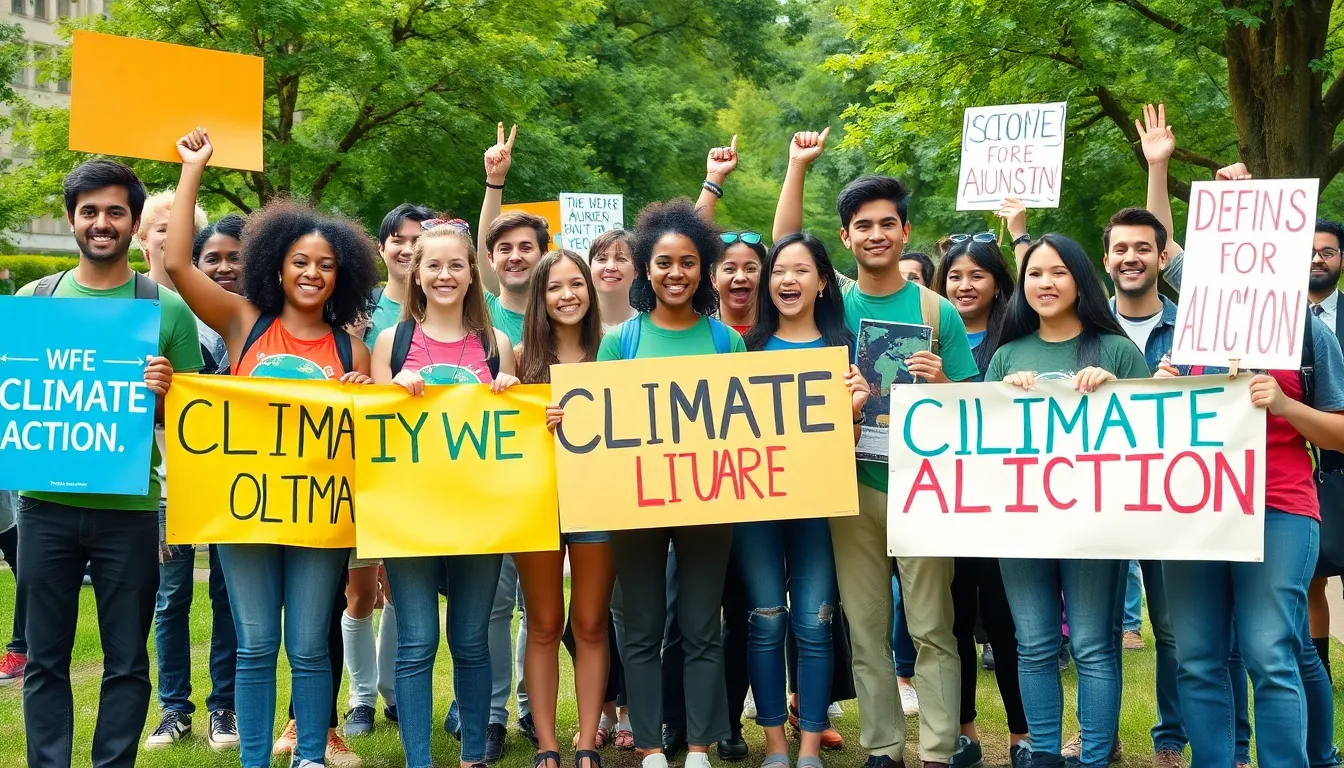Table of Contents
TogglePolitics can feel like a never-ending roller coaster ride, with twists and turns that leave everyone gasping for breath. As the world spins into 2023, it’s clear that current political trends are shaping the future in ways that could make even the most seasoned political analyst raise an eyebrow. From the rise of populism to climate change activism, these trends aren’t just headlines—they’re the pulse of society.
Navigating the political landscape today is like trying to find a needle in a haystack, except the haystack is on fire and the needle is wearing a campaign button. With each election cycle, new issues emerge, and old ones resurface, making it essential to stay informed. Buckle up as we dive into the latest developments and trends that are redefining political discourse, because in this game, knowledge isn’t just power—it’s survival.
Overview of Current Political Trends
Populism continues to gain traction globally, as leaders and movements appeal to the common citizen’s frustrations. Voters increasingly gravitate toward candidates who prioritize their immediate needs, often overlooking traditional party lines. This shift in political allegiance has led to more polarized environments within many democracies.
Another significant trend involves the rising awareness and activism surrounding climate change. Young activists play a crucial role, demanding swift action from governments to address environmental issues. Their influence shapes political platforms, compelling candidates to include sustainability in their agendas.
Economic disparities also fuel discontent. As wealth inequality grows, many citizens advocate for policies that ensure fair distribution of resources. Aligning with this demand, various movements push for higher taxation on the wealthy and increased social safety nets.
Social issues remain at the forefront of political debate. Topics such as racial justice, gender equality, and LGBTQ+ rights mobilize vast constituencies. Politicians recognize the necessity of addressing these concerns, often integrating them into their campaign messages.
Additionally, technology’s impact on politics cannot be ignored. Social media serves as a powerful tool for organization and information dissemination. As a result, misinformation’s prevalence poses challenges for informed decision-making.
Finally, global crises, such as pandemics and conflicts, reshape national priorities. Governments increasingly focus on emergency preparedness and response strategies, influencing long-term policy decisions. Observers can anticipate these trends further evolving as political landscapes adapt to these challenges.
Key Political Movements

Current political movements highlight significant shifts in citizen engagement and priorities. Populism appeals to discontent among the electorate, as leaders often emphasize nationalism, economic inequality, and a disconnect from traditional political elites. This approach has led to sharply divided opinions, leading to an uptick in political extremism.
Environmentalism increasingly influences political discourse. Young activists amplify the urgency to combat climate change, advocating for comprehensive policies that emphasize sustainability. Political platforms now commonly integrate environmental issues, reflecting a public desire for action. National and international policies prioritize green energy initiatives, aiming to alter the trajectory of climate change. Governments face mounting pressure to address these demands, acknowledging the interconnectedness of environmental health and social welfare.
Impact of Technology on Politics
Technology significantly alters political landscapes, particularly through social media and data privacy concerns. The rapid evolution of communication tools shapes how politicians connect with constituents and influence public opinion.
Social Media Influence
Social media platforms play a crucial role in modern political discourse. Politicians utilize these channels for direct communication, circumventing traditional media filters. Engaging campaigns often rely on viral content to mobilize supporters and recruit volunteers. Activists effectively leverage social media for grassroots movements, amplifying messages that resonate with younger generations. Misinformation, however, poses a serious challenge, as false narratives spread quickly across platforms. Algorithms that prioritize sensational content can distort public perception, affecting voter behavior. Governments increasingly recognize the need for regulation to counter these effects while balancing free expression.
Data Privacy Concerns
Data privacy issues directly impact political engagement. Citizens express growing unease about how their personal data is collected and utilized by political campaigns. Various instances of data breaches have heightened public awareness surrounding digital security. Targeted advertising based on voter data raises ethical questions about manipulation and consent. As campaigns employ sophisticated analytics to persuade voters, transparency becomes essential. Legislative efforts aimed at protecting citizens’ privacy are gaining traction, shaping future political strategies. Informed voters demand accountability from candidates regarding data use, placing pressure on political entities to prioritize ethical standards.
Shifts in Voter Behavior
Shifts in voter behavior are evident as political dynamics evolve in 2023. Observers note significant changes in how various demographics engage with the electoral process.
Increase in Young Voter Participation
Young voter participation has surged, especially in recent elections. Increased activism among younger generations aligns with pressing social and environmental issues. Organizations focused on mobilizing youth create platforms for political engagement. An example includes the rise of initiatives that encourage registration and participation among students. This uptick suggests that political campaigns are recognizing the influence of young voters, adapting strategies to address their concerns. As this demographic becomes more involved, issues like climate change and social justice gain further prominence in national discussions.
Changing Demographics
Changing demographics are reshaping the political landscape. Diverse communities are increasingly participating in elections, demonstrating the importance of representation. Factors such as immigration and urbanization contribute to this shift. Political parties are adjusting their messaging to resonate with varying cultural backgrounds. Women, minorities, and younger voters now play critical roles in shaping electoral outcomes. This transformation highlights the necessity of understanding local issues that affect different groups within the electorate. Consequently, candidates who prioritize inclusivity and equity often see enhanced support from these emerging voter bases.
The political landscape in 2023 is marked by rapid changes and emerging trends that reflect the evolving priorities of citizens. As populism and climate activism gain momentum the need for informed engagement becomes increasingly vital. The growing influence of technology in shaping political discourse presents both opportunities and challenges that require careful navigation.
With shifting demographics and heightened activism among younger voters political parties must adapt their strategies to resonate with diverse communities. The ongoing global crises further complicate this landscape emphasizing the importance of understanding local issues and fostering inclusivity. As these trends continue to unfold staying attuned to the dynamics of political discourse will be essential for anyone seeking to comprehend the future of governance and civic engagement.




